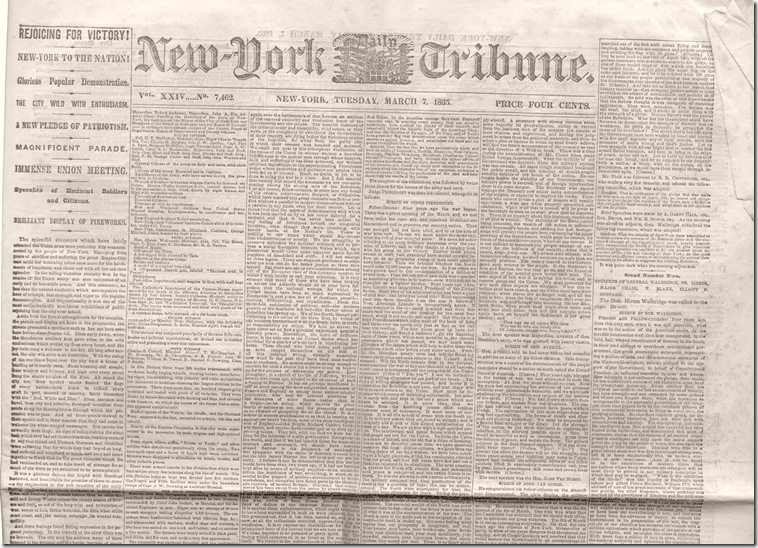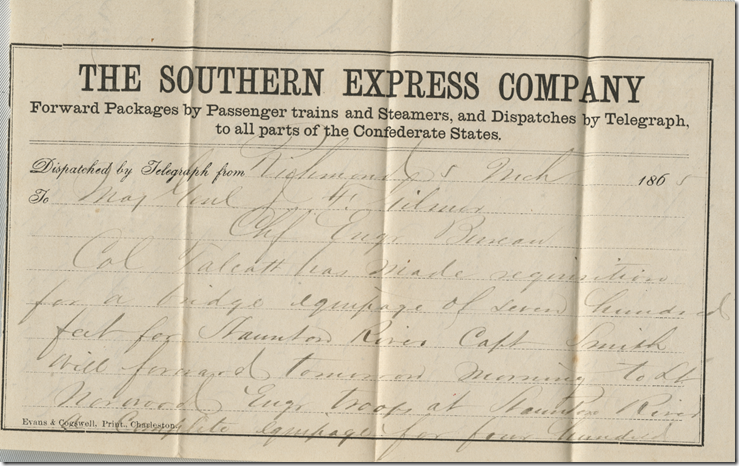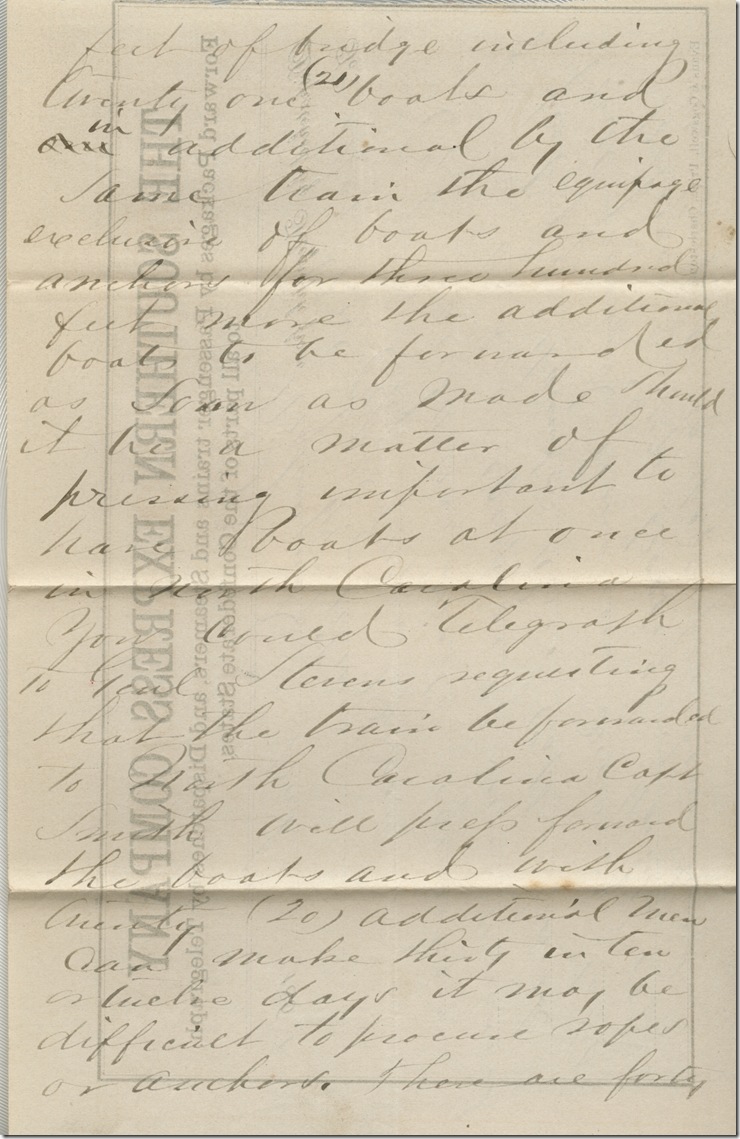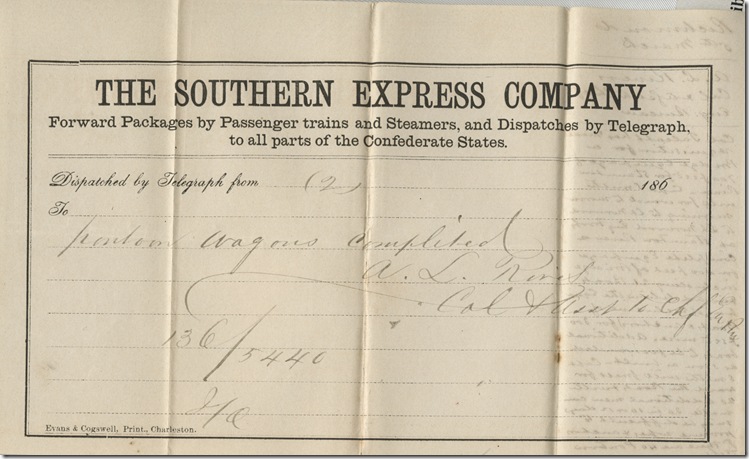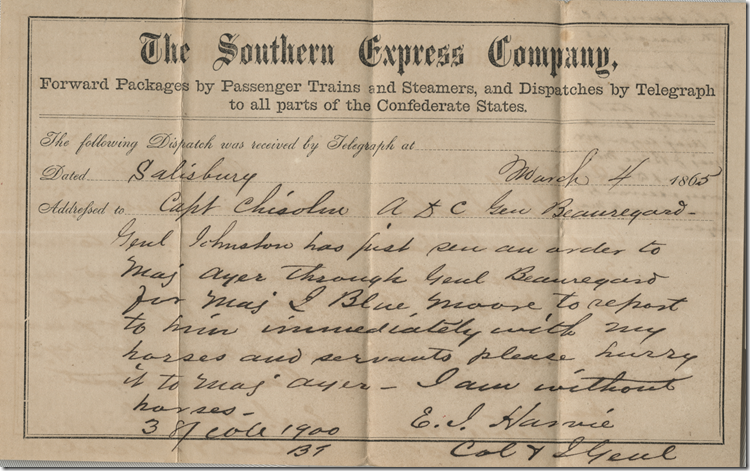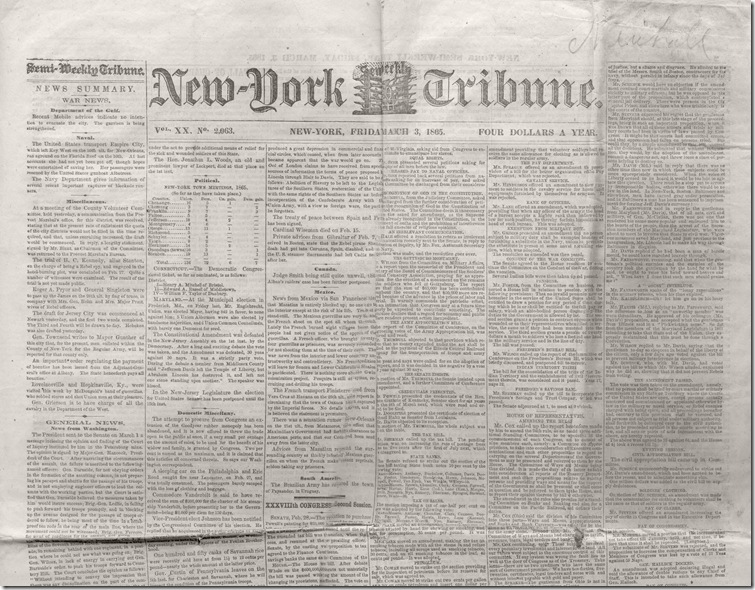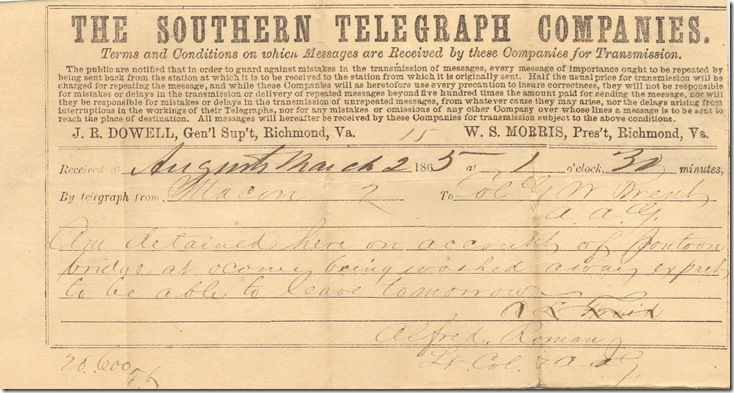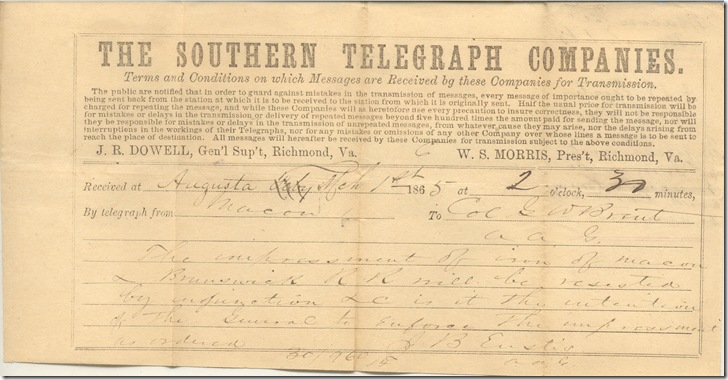Transcript (excerpt):
Page 1, Upper Half
The splendid successes which have lately attended the Union arms were yesterday fitly commemorated by the people of New York. Emerging from years of sacrifice and suffering, the great Empire City cast aside her mourning robes once more for the habiliments of happiness and shone out with all her old time splendor. In the telling victories recently won by the armies of the Union every one sees assurance of an early and an honorable peace. And this assurance, no less than the natural exultation which accompanies the hour of triumph, lent strength and vigor to the popular demonstration. And unquestionably it was one of the most enthusiastically unanimous exhibitions of public rejoicing that the city ever beheld.
Citation: New York Daily Tribune. 7 March 1865. Gift of Steven and Susan Raab.
